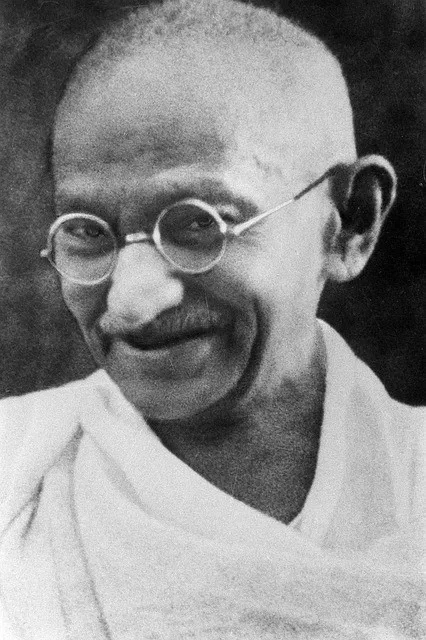Welcome to a captivating exploration of the remarkable books written by Mahatma Gandhi, the revered leader who guided India to independence. Beyond his role as a political icon, Gandhi’s writings offer profound insights into life, society, and spirituality. They continue to inspire and enlighten people worldwide, serving as timeless reminders of nonviolence, truth, justice, and the pursuit of a harmonious existence.
In this blog, we embark on an exciting journey into the literary world of books written by Mahatma Gandhi. Together, we’ll dive into the essence of his writings and uncover the immense impact they have had across generations. Through his books, we’ll explore the themes, ideas, and philosophies that shaped Gandhi’s extraordinary life and influenced his unwavering commitment to nonviolent change.
“Satya Ke Prayog”


Mahatma Gandhi’s inspiring autobiography, “Satya Ke Prayog,” details the important lessons he learned throughout his life.
Gandhi discusses his personal journey, moral quandaries, and self-reflection from his early years to his experiences in South Africa.
The autobiography emphasizes the value of honesty and self-control in overcoming obstacles in life. It demonstrates Gandhi’s unwavering dedication to nonviolent resistance, equality, and justice.
Readers are encouraged to align their actions with their values and beliefs in “Satya Ke Prayog.”
Gandhi makes a lasting impression on people by sharing his personal and societal transformations through his experiences.
Because it provides timeless insights into the power of truth and the potential for positive change, the autobiography continues to have an impact on readers all over the world.
“Hind Swaraj” or “Indian Home Rule”


In his book “Hind Swaraj” or “Indian Home Rule,” written in 1909, Mahatma Gandhi passionately advocates for India’s self-governance and freedom from British colonial rule.
The book serves as a scathing critique of British imperialism and its detrimental impact on Indian society.
Gandhi argues that India’s problems extend beyond external political domination, pointing out that the adoption of Western civilization and values has contributed to the country’s struggles.
According to Gandhi, true independence lies not only in political liberation but in spiritual and moral regeneration.
He emphasizes the need for self-sufficiency and self-discipline, rejecting the notion that material progress alone can lead to true freedom. Instead, Gandhi advocates for a return to traditional Indian values, promoting communal harmony and the pursuit of truth.
Through “Hind Swaraj,” Gandhi challenges the very foundations of Western modernity and presents a vision of India’s future based on self-rule, simplicity, and the empowerment of its people.
This influential book lays the groundwork for Gandhi’s philosophy of nonviolent resistance, or satyagraha, which became a powerful force in India’s struggle for independence. “Hind Swaraj” continues to inspire readers with its profound insights into political, social, and spiritual dimensions of freedom and self-governance.
“Satyagraha in South Africa”


Through “Satyagraha in South Africa,” Gandhi shares his reflections on the importance of moral courage, resilience, and the power of peaceful resistance.
He delves into the challenges faced by satyagrahis, including arrests, imprisonments, and confrontations, while emphasizing the transformative impact of nonviolence in bringing about lasting change.
The book provides valuable insights into Gandhi’s evolving philosophy of nonviolent resistance, laying the foundation for his future role as a leader in India’s struggle for independence.
It showcases how the lessons learned in South Africa influenced Gandhi’s approach to satyagraha, inspiring his efforts to mobilize masses and create a collective consciousness of truth and justice.
“Satyagraha in South Africa” is an essential read for those interested in understanding the early development and practical application of Gandhi’s philosophy of nonviolence.
It serves as a testament to the enduring power of satyagraha and its potential to challenge oppressive systems and bring about social transformation.
“India of my dreams”


“India of My Dreams” is a book written by Mahatma Gandhi, where he shares his vision for an independent India.
He envisions a country that embraces diversity, promotes economic growth, social justice, education, and women’s empowerment, all through the principles of nonviolence.
Gandhi believed in a united India, where people from different religions, castes, and backgrounds live together harmoniously.
He emphasized that India’s independence meant not just political freedom, but also economic and social freedom for all citizens.
Education played a crucial role in Gandhi’s vision. He stressed the importance of a comprehensive education system that not only taught academic subjects but also life skills and moral values.
Gandhi was a strong advocate for women’s empowerment. He believed in equal opportunities for women in education, employment, and political representation, recognizing their vital role in India’s development.
Nonviolence was at the core of Gandhi’s approach. He believed in peaceful means to achieve India’s goals and practised nonviolent resistance throughout his life, inspiring others to do the same.
His ideas continue to inspire and remind us of the path towards building a just and equitable society for all in India.
“Peace: The Words and Inspiration of Mahatma Gandhi”


“Peace: The Words and Inspiration of Mahatma Gandhi” is a book compiled and centered around the profound teachings and insights of Mahatma Gandhi, the revered leader and advocate of nonviolence.
In this book, readers are presented with a collection of Gandhi’s writings, speeches, and personal reflections, all focused on the theme of peace.
Throughout the book, Gandhi shares his wisdom on various aspects of peace, including inner peace, social harmony, and global peace. He emphasizes the importance of cultivating peace within oneself as a foundation for achieving peace in the world.
Gandhi’s teachings encourage individuals to embrace compassion, forgiveness, and understanding as essential elements in creating a peaceful society.
Furthermore, Gandhi addresses the interconnectedness of humanity and the need to overcome divisions based on religion, caste, or nationality. He advocates for nonviolence as a powerful tool for resolving conflicts, both at personal and societal levels.
Gandhi’s teachings on peaceful resistance and civil disobedience continue to inspire movements worldwide, demonstrating the potential for change through nonviolent means.
This book is a valuable resource for anyone seeking inspiration and guidance on the pursuit of peace, drawing from the wisdom and teachings of one of history’s most influential peace leaders, Mahatma Gandhi.
In conclusion, exploring the books written by Mahatma Gandhi offers us a glimpse into the profound wisdom, principles, and ideals of this remarkable leader. Through his writings, Gandhi imparts timeless lessons on nonviolence, truth, justice, and the pursuit of a harmonious society.
As we reflect on these books, we recognize the enduring legacy of Mahatma Gandhi and the transformative power of his ideas. His writings serve as a beacon of hope, encouraging us to strive for a more just, peaceful, and inclusive society.
By studying and embodying the principles espoused in these books, we can continue to carry forward the torch of Gandhi’s legacy, creating positive change in our own lives and contributing to the betterment of our communities and the world at large.
We put a lot of effort into putting up this blog article. Yet there’s always something that needs improvement. If you find anything erroneous or misleading, please do let us know and we’ll be happy to include your feedback. Your feedback helps us to improve and ensures that we provide the best reading experience for all our readers.








